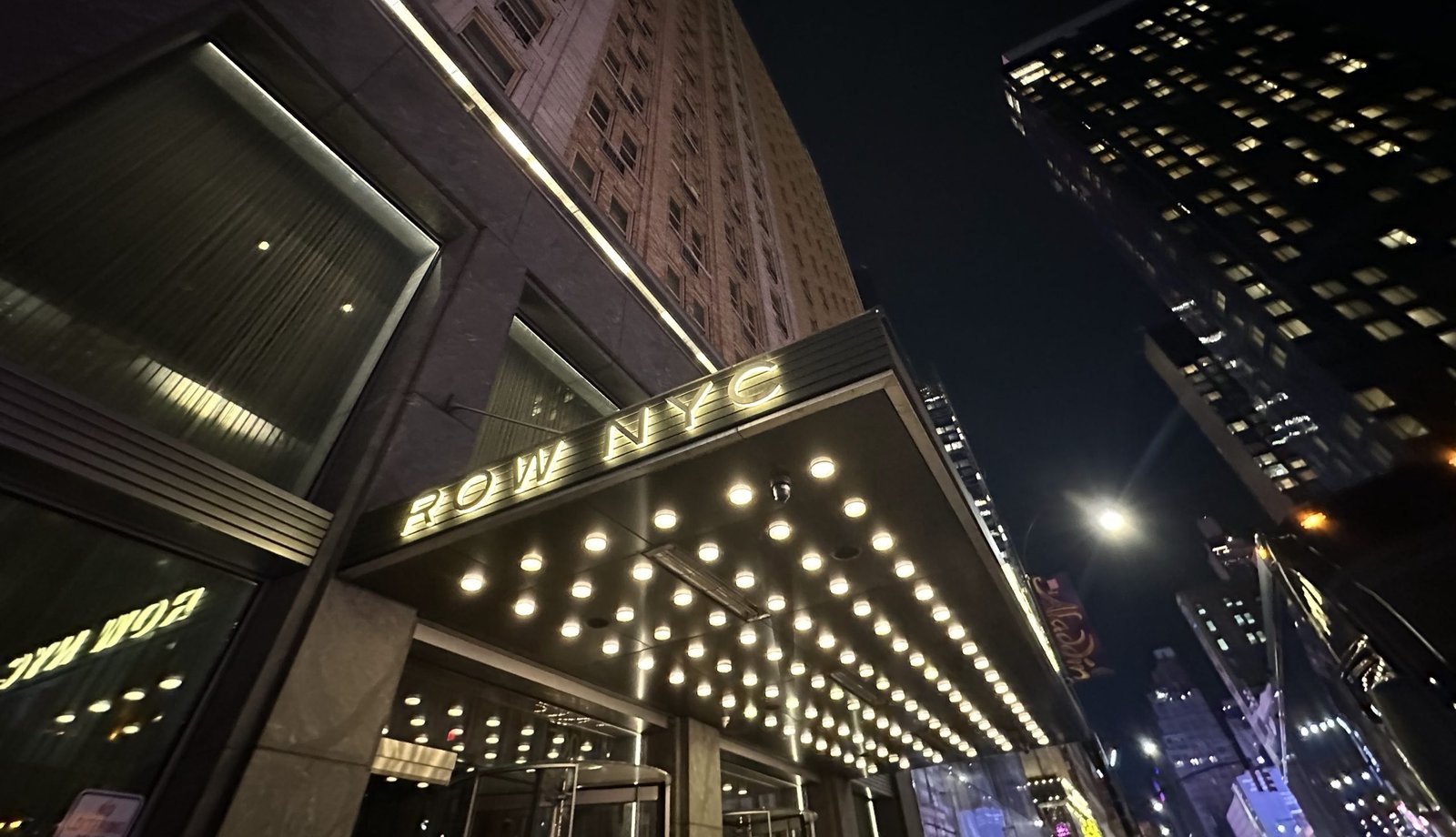Hotels & Accommodations
Haritha hotels in for revamp to increase profits & footfall | Hyderabad News

Hyderabad: In an effort to improve footfall and increase profits, the Telangana Tourism Development Corporation (TGTDC) is set to renovate tourism hotels in the state. The state has 25 Haritha hotels, as the tourism hotels are called, which haven’t been refurbished in over 10 years. Almost 20 of them face issues such as broken doors, leaky roofs, and old and dingy furniture.“We recently conducted a survey of the hotels and realised that there is scope for improvement in some of them. Our customers deserve only the best experience, and presently, in terms of stay, we can do a lot better,” Valluru Kranthi, managing director of TGTDC, said.Some of the hotels, especially the ones in Hyderabad such as the Hotel Tourist Plaza, and the Haritha Hotel in Warangal, were recently renovated last year on account of the Miss World event held in May this year.Despite the sorry state of some of the hotels, the business continues to be profitable, according to officials. They also say that the hotels get 50% occupancy on weekdays and some are fully occupied on weekends during tourist season.“Last year, we made a profit of 11 crore through these hotels. But our target, after the upgrade work, is to reach the 25-crore mark, and also encourage tourists to use these hotels even more,” Kranthi added.In addition to upgrading the hotels, officials said they plan to establish at least four more hotels in the coming years. The initiative is part of the recently announced Telangana Tourism Policy (2025-30), which aims at propelling the state as one of the most sought-after destinations of tourism in the country.
Hotels & Accommodations
The Row Hotel to Close as Last Emergency Migrant Shelter in NYC

The city’s final hotel serving as an emergency shelter for migrants — The Row Hotel on 8th Avenue between W44th and W45th Streets — is set to close in the coming months, marking what Mayor Eric Adams calls “another major milestone” in managing the humanitarian crisis that has reshaped New York, and Hell’s Kitchen, over the past three years.
“Three years ago, thousands of migrants and asylum seekers began streaming into our city every week — and the Adams administration stepped up,” the mayor said in a statement announcing the closure. “In the coming months, we are proud to share that we will be closing another site — the Row Hotel, the last hotel in the city’s emergency shelter system — marking yet another major milestone in our administration’s recovery from this international humanitarian crisis.”
The City first leased the 1,331-room hotel — at a reported $5.13 million per month — in October 2022, as part of a sweeping effort to provide temporary housing for newly arrived asylum seekers. At its peak, a total of seven hotels in Hell’s Kitchen were converted into emergency housing for migrants, with the two largest being The Watson (440 W57th Street) and The Row.
The Hotel Merit on W46th Street has since returned to the tourist market, while The Watson closed as a shelter earlier this year amid plans by its owners to potentially convert the property into apartments. The Mayor’s Office has confirmed that the remaining four hotels previously used as emergency migrant shelters in the neighborhood — including the Skyline and Washington Jefferson — are now operating as mixed-population Department of Homeless Services shelters.
At its peak, The Row was one of more than 100 hotels citywide adapted into emergency housing for migrants. Its closure follows the shuttering of 64 other emergency sites, according to City Hall, as the number of migrants in the shelter system declines.
The Row’s latest chapter is just one turn in its long history. Opened on February 1, 1928, as the Hotel Lincoln, the 27-story building was designed by Schwartz & Gross with consulting architect Herbert J Krapp, and developed by brothers Henry and Irwin Chanin alongside several nearby theaters. Over the decades, it has operated under a series of names — including the Hotel Manhattan, Royal Manhattan and Milford Plaza — each tied to major renovations and shifts in the city’s hospitality industry.
Ownership has also changed hands frequently, with notable transactions including the Milstein family’s purchase and reopening in 1980, a 2011 acquisition by Rockpoint Group and Highgate Holdings, and the 2013 sale of the ground lease to David Werner and Deutsche Asset & Wealth Management for $325 million. Most recently, Highgate acquired Werner’s interest in 2024 for roughly $350 million, gaining full control of the property.
We reached out to Highgate Holdings about their planned future use of the property, but had not received a response by time of publication. We will update the story if more information becomes available.
Hotels & Accommodations
British American Tobacco awaiting RBI approval to check out of ITC Hotels

This is required as the ITC holding dates back to the early 1900s, BAT chief executive Tadeu Marroco told analysts on an earnings call last week.
Unlocking Shares
“Sometimes things take longer for us to be able to unlock those shares, get the right approvals in the right forums,” he had said. “In this case, it’s the central bank in India, in order to be able to transact.”
Once this comes through, BAT will embark on selling the holding as it will help the company return to the corridor of 2-2.5x adjusted net debt/ebitda by the end of 2026. “We intend to use the proceeds of the hotel to deleverage further the company,” he said.
The hotels business was demerged from ITC in January. Under the plan, ITC shareholders hold 60% of the unit with the rest owned directly by ITC. As a result, BAT owns 15.29% in ITC Hotels as a foreign direct investment, making it the largest public shareholder after ITC’s promoter holding of 39.87%, as per the shareholding pattern at the end of June.
As of June, ITC Hotels had a portfolio of over 200 hotels-143 operational and 58 in the pipeline.
Analysts tracking the company said RBI’s approval is required since this deal involves a foreign company selling its shares in an Indian company and taking the money out of India. They added that it could also have something to do with ITC being a tobacco company and FDI not being allowed in the segment. Marroco said BAT wants to divest the stake as it “strategically” doesn’t want to be in the hotel business.
Capital Flexibility
BAT recently reduced its holding in ITC through two block deals after receiving RBI approval-in February last year (3.5%) and May this year (2.5%)-lowering its holding in the cigarette-to-FMCG major to 22.93% from 29%.
Marroco said in the latest earnings release that BAT’s continued strong cash conversion and the recent partial monetisation of its ITC stake has enhanced its capital flexibility. The company received 1.1 billion from the May stake sale, which increased its share buyback for 2025 from 0.9 billion to 1.1 billion.
BAT declared that as part of the demerger accounting of ITC Hotels, ITC recognised the excess of the fair value over the carrying value of the hotels business as an adjusting item. BAT’s share of this adjusted gain amounted to 333 million (net of tax), it said in the earnings release.
Hotels & Accommodations
UK anti-immigrant protests erupt over hotels housing asylum seekers: What you need to know

Across the UK, growing protests have erupted outside hotels housing asylum seekers, exposing deep community divisions and raising concerns about safety, misinformation, and the government’s handling of asylum accommodations. As both protesters and counter-protesters clash, police face increasing pressure to maintain order amid a heated national debate over immigration and public security.
The protests are primarily about the use of hotels across the UK to house asylum seekers, which has sparked significant local concern and division. Many residents, including mothers and grandmothers, fear that the presence of asylum seekers in their communities poses risks to safety, especially for women and children. These fears have been amplified by high-profile criminal cases involving some asylum seekers, leading to larger public outcry and demonstrations. On the other hand, counter-protesters argue that many asylum seekers are legitimate refugees seeking protection and criticize the anti-migrant protests as fueled by misinformation and racism. The protests have attracted far-right activists in some areas, raising tensions further and prompting police to prepare carefully to maintain order. Overall, the demonstrations reflect broader anxieties about immigration, community safety, and the government’s handling of asylum accommodation.
Recent weeks have seen a surge in protests across multiple UK cities over the government’s policy of housing asylum seekers in hotels.
Protests highlight community concerns and divisions
Police in Liverpool, among other cities, have managed to keep opposing groups separated during protests near hotels housing asylum seekers, with many officers visibly prepared with riot gear. While largely peaceful, the events have seen heated exchanges of shouting and occasional minor scuffles.
On the anti-migrant side, many protesters are women—mothers and grandmothers—expressing fears for their children’s safety and the impact of housing asylum seekers in their neighborhoods. Meanwhile, counter-protesters have voiced strong opposition to what they describe as misinformation and racism, welcoming refugees and accusing some protesters of xenophobia.
Incidents spark larger demonstrations
Tensions escalated in Nuneaton following the arrest of two Afghan asylum seekers charged with the rape of a 12-year-old girl. Hundreds protested, outnumbering counter-demonstrators, with police intervening to prevent clashes. Similar protests have occurred in Bristol, Bournemouth, Birmingham, and other locations.
The protests began notably at the Bell Hotel in Essex after a man living there faced charges of sexual assault and harassment. This case intensified local opposition and sparked wider debates about the policy of using hotels for asylum accommodation.
Far-right influence and community activism
Some protests have seen involvement from far-right activists, though many participants are everyday residents new to political activism, indicating a shift in public sentiment in affected areas. Anti-racist groups such as Stand Up To Racism warn these far-right elements are exploiting concerns to incite violence and division.
Government and policing challenges
Police forces across the country report significant strain managing the volume and frequency of protests. Essex Police noted events drawing up to 2,000 participants.
Who are the asylum seekers?
Asylum seekers arriving in the UK seek protection from persecution and danger in their home countries, although not all are granted asylum status. They are typically housed in government-contracted hotels and accommodations managed by firms like Serco, Clearsprings, and Mears, mostly in southern England. The government spends millions daily on these arrangements, with projected costs soaring.
Controversies over crime and transparency
Local communities have raised concerns about alleged increases in crime linked to asylum hotels. However, official crime data does not provide clear information tying offenses to asylum seekers, making it difficult to assess the validity of such claims. Police statistics on the nationality or immigration status of suspects are not publicly detailed.
Political responses and future outlook
The Home Office has removed thousands from hotels and closed many facilities amid mounting criticism. The Labour Party has pledged to close all asylum hotels by the next election, advocating for more sustainable housing solutions.
Meanwhile, groups like Stand Up To Racism call for better government engagement with local councils and communities to improve information flow and counter misinformation.
The ongoing influx of asylum seekers, combined with high accommodation costs and public disquiet, poses an ongoing challenge for the UK government, highlighting tensions between humanitarian commitments and community stability.
-

 Brand Stories3 weeks ago
Brand Stories3 weeks agoBloom Hotels: A Modern Vision of Hospitality Redefining Travel
-

 Brand Stories2 weeks ago
Brand Stories2 weeks agoCheQin.ai sets a new standard for hotel booking with its AI capabilities: empowering travellers to bargain, choose the best, and book with clarity.
-

 Destinations & Things To Do3 weeks ago
Destinations & Things To Do3 weeks agoUntouched Destinations: Stunning Hidden Gems You Must Visit
-

 Destinations & Things To Do2 weeks ago
Destinations & Things To Do2 weeks agoThis Hidden Beach in India Glows at Night-But Only in One Secret Season
-

 AI in Travel3 weeks ago
AI in Travel3 weeks agoAI Travel Revolution: Must-Have Guide to the Best Experience
-

 Brand Stories1 month ago
Brand Stories1 month agoVoice AI Startup ElevenLabs Plans to Add Hubs Around the World
-

 Brand Stories1 month ago
Brand Stories1 month agoHow Elon Musk’s rogue Grok chatbot became a cautionary AI tale
-

 Brand Stories3 weeks ago
Brand Stories3 weeks agoContactless Hospitality: Why Remote Management Technology Is Key to Seamless Guest Experiences
-

 Asia Travel Pulse1 month ago
Asia Travel Pulse1 month agoLooking For Adventure In Asia? Here Are 7 Epic Destinations You Need To Experience At Least Once – Zee News
-

 Brand Stories1 month ago
Brand Stories1 month agoChatGPT — the last of the great romantics











You must be logged in to post a comment Login